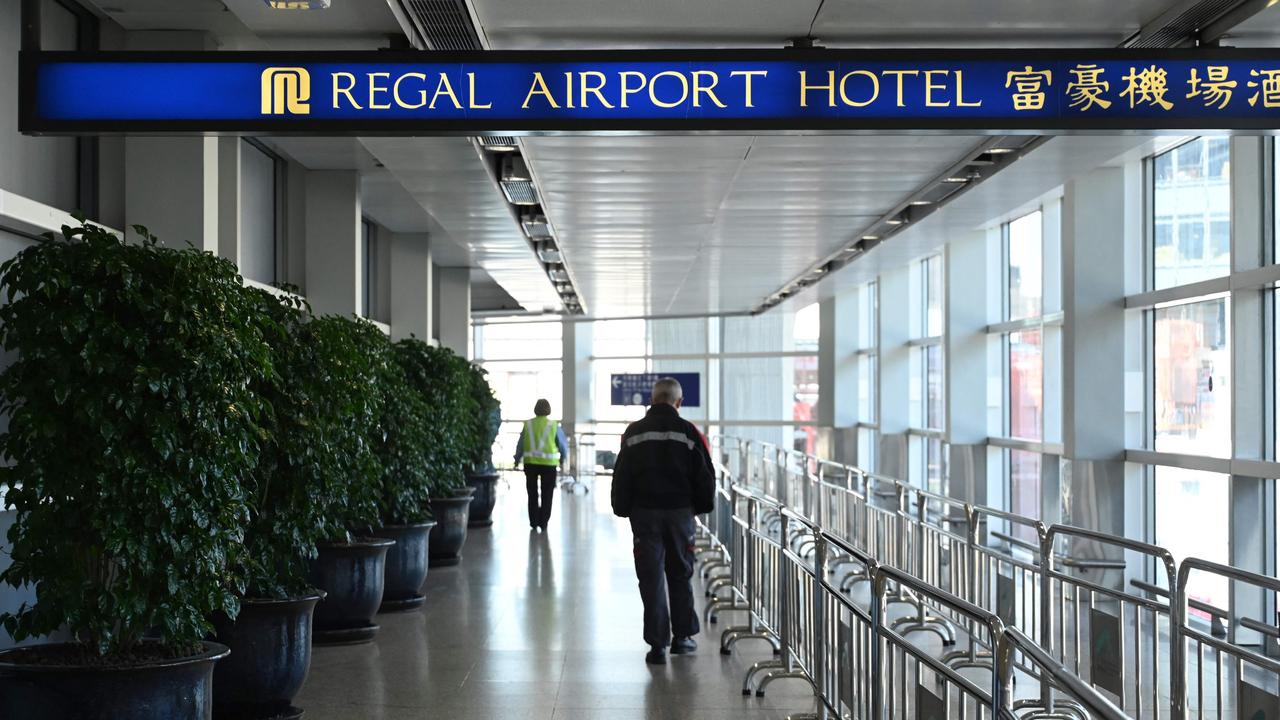New Covid strain renamed ‘Omicron’ and declared a ‘variant of concern’
The World Health Organisation has renamed the new variant Omicron, declaring it a “variant of concern”. Now countries are closing their borders.
The World Health Organisation on Friday declared the recently-discovered B. 1.1.529 strain of Covid-19 to be a variant of concern, renaming it Omicron.
“Based on the evidence presented indicative of a detrimental change in Covid-19 epidemiology … the WHO has designated B. 1.1.529 as a variant of concern, named Omicron,” the UN health agency said in a statement.
“This variant has a large number of mutations, some of which are concerning.
“Preliminary evidence suggests an increased risk of reinfection with this variant, as compared to other VOCs (variants of concern).
“The number of cases of this variant appears to be increasing in almost all provinces in South Africa.”
A strain of Covid can be classified as a variant of concern if it is more infectious or there is a “detrimental change” to its epidemiology, it leads to more serious disease, or makes vaccines and other treatments less effective.
The WHO said infections in South Africa have increased steeply in recent, coinciding with the detection of B.1.1.529 variant.
The first known infection was from a specimen collected on November 9.
“This variant has been detected at faster rates than previous surges in infection, suggesting that this variant may have a growth advantage,” the statement said.
Deakin University epidemiologist Professor Catherine Bennett previously told news.com.au the variant was a standout for the sheer number of mutations it contains but also for where many of these were located.
“More than 30 are in the spike region alone,” she said.
Mutations in the spike region are particularly significant because this is where the virus attaches to human cells, it’s also that part of the virus that vaccines focus on.
The classification as a “variant of concern” asks countries to enhance surveillance of Omicron and report extra data to specific bodies.
It comes as Belgium detected the first announced case of Omicron in Europe and countries slammed their borders shut to travellers from African countries.
The United States announced Friday it is restricting travel from eight southern African countries over fears of the new variant, which some had expected to be named Nu but which has now been dubbed Omicron.
Travel will be mostly banned starting Monday from South Africa, Botswana, Zimbabwe, Namibia, Lesotho, Eswatini, Mozambique and Malawi, a senior official in President Joe Biden’s administration said.
Only US citizens and permanent residents will still be able to travel from the eight countries, the official, who spoke on condition of anonymity, added.
Canada also banned travellers from seven African countries — Botswana, Eswatini, Lesotho, Mozambique, Namibia, South Africa and Zimbabwe — over concerns about the variant.

Omicron detected in Europe
Belgium detected the first announced case in Europe of the new variant, in an unvaccinated person returning from abroad.
“We have a case that is now confirmed of this variant,” B. 1.1.529, first detected in southern Africa, Belgian Health Minister Frank Vandenbroucke told a media conference.
The infected person tested positive on November 22 and had not had Covid-19 before, he added, without giving further details.
A leading Belgian virologist, Marc Van Ranst, tweeted that the person had returned from Egypt on November 11.
Vandebroucke said: “It must be repeated that this is a suspect variant — we don’t know if it is a very dangerous variant.”
He noted, however, that “as a precaution” Europe was stopping flights from southern Africa.
“So, total precaution but don’t panic,” he said, adding that Belgium’s Covid-19 risk assessment group was analysing the situation.
Israel hit
Israel has recorded its first confirmed case of the new Covid variant, B. 1.1.529, after a traveller entered the country via a flight from Malawi, a country in southeastern Africa.
It was the third case of the new highly mutated strain that’s been recorded outside of Africa, after two cases were detected in Hong Kong. Belgium is now the fourth as the variant spreads.
The transmission was confirmed by Israel’s Ministry of Health which is currently investigating the patient’s contacts. Authorities also fear two more returnees from Malawi may have contracted the variant, however the results are pending genetic sequencing.
Currently, all three travellers are in isolation.
“In all three cases, they are vaccinated and their immunisation details are currently being verified,” read statement from the Ministry.
Statement from Israel's health ministry reporting 1 confirmed case of new coronavirus variant B.1.1.529 [unofficial translation] pic.twitter.com/RTm3QovHm0
— BNO Newsroom (@BNODesk) November 26, 2021
On Thursday, the Israeli government announced it was banning travel between Israel and several regions in southern Africa. South Africa, Lesotho, Botswana, Zimbabwe, Mozambique, Namibia and Eswatini have also been added to the country’s list of “red” or riskiest countries to travel to. Israelis returning from the listed countries would also need to spend seven to 14 days in hotel quarantine.
On Thursday, a case of the B. 1.1.529 strain was found in Hong Kong in a traveller undertaking hotel quarantine. The traveller returned the positive result on the fourth day of quarantine after two tests.
Reports suggest they were infected by a guest from across the hallway who had tested positive on their eighth day of quarantine after four PCR tests. Both cases had received two doses of the Pfizer vaccine.
Since its discovery, the new variant is worrying scientists with fears the highly-mutated strain could be more transmissible or more resistant to vaccines. This is because the variant has over 50 mutations, with 32 of those located in the spike region, which could change how the virus attaches to human cells. This is also the area that vaccines focus on.
However, speaking to media via a virtual press briefing, the World Health Organisation’s technical lead on Covid-19, Maria Van Kerkhove said it could “take a few weeks” before these fears are confirmed.
“The concern is that when you have so many mutations, it can have an impact on how the virus behaves,” she said.
“It will take a few weeks for us to understand what impact this variant has on any potential vaccines.”

Upon the discovery of the new strain, British Health Secretary Sajid Javid placed six African nations (South Africa, Botswana, Namibia, Zimbabwe, Lesotho and Eswatini) on its Red List, barring travel to and from the countries unless special permissions are granted.
Despite this the Australian government is yet to act.
Speaking to press on Friday, Health Minister Greg Hunt said he believed our vaccine coverage would protect us against the B. 1.1.529 strain.
“It‘s highly unlikely to affect the efficacies of the vaccine,” he said.
“This is a very different situation to the Delta emergence and the high case numbers we saw in India. We are very highly vaccinated.
“There is no basis for change.”





